Coming Era of Water Scarcity Will Prompt Global Industrial Transformation, According to Survey of International Experts
Acute water shortages will change strategy, business operations; depletion of global water resources is more rapid, severe, and complex than anticipated.
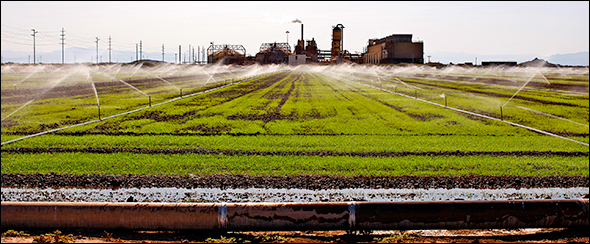
By Keith Schneider
Circle of Blue
WASHINGTON, D.C. – Population growth, urban development, farm production, and climate change is increasing competition for fresh water and producing shortages so acute that virtually every industry in the world anticipates sweeping systemic transformation over the next decade in their strategic planning, production practices, and business models.
That is the conclusion of a global opinion poll of more than 1,200 sustainability experts conducted and made public today by GlobeScan, an international public and stakeholder opinion research firm, and SustainAbility, a think tank and business strategy consultancy.
Jeff Erikson, senior vice president at SustainAbility, told Circle of Blue that the decisions executives make to respond to freshwater scarcity will penetrate almost every aspect of their business operations. For instance, executives who consider locating plants in China are likely to more carefully consider the consequences of rapidly melting Himalayan glaciers in the Tibetan Plateau that feed some of China’s most important rivers. In the United States, manufacturers may shift new plants from the increasingly dry Southwest back to the water-rich Great Lakes region.
“Over the last 20 years water shortage has not been a lens that has been heavily considered in plant siting,” said Erikson. “That will change.”
Poll Results
The Sustainability Survey Poll on Water was conducted in more than 80 countries. Some 1,200 influential thought leaders from companies, governments, NGOs, and academia said that multi-faceted engagement with water will be required for companies and governments to effectively manage businesses and communities. The new SustainAbility and GlobeScan survey comes six months after a Circle of Blue/GlobeScan survey of 15,000 people in 15 countries found that water scarcity and water pollution are the top environmental concerns in the world. (See Sustainability Survey Poll on Water Infographics below.)
Along with return on investment, capital requirements, and quarterly returns companies that want to stay in business will need to add expertise to their staffs to manage the new market signals in the era of water scarcity. New business practices will stress water conservation and efficiency, ecosystem protection, public education and engagement. Companies also will need to anticipate market pressure to appropriately price water.
“Our panel of experts has been very good at predicting implications for companies in the sustainability agenda,” said Chris Coulter, senior vice president at GlobeScan. “These findings should sound the alarm for companies that haven’t yet established robust water strategies. This is about literally retaining license to operate in many parts of the world.”
Shortages Produce Systemic Change
The experts who were surveyed said water scarcity will deeply influence virtually every major company that wants to stay in business in the 21st century. Water shortages will shift public perception of the value of water, prompting governments and companies to view clean water not as a commodity to exploit but as a precious resource.
That in turn, for instance, will prompt food companies and farmers — who use 70 percent of the world’s fresh water — to develop much more effective water-conserving irrigation and production practices.
Water scarcity will change products and how they are marketed. For example, household appliance manufacturers are already touting water savings right alongside energy savings in their product advertising. And apparel manufacturers and retailers are exploring how to help consumers reduce water consumption by developing clothing fabrics that require less frequent washing.
Industrial companies, said Erikson, will add a new “layer of consideration” in how they operate to anticipate the consequence of fresh water shortages in their markets. They no longer will have the luxury of producing water-intensive products — cars, steel, chemicals, energy to name a few — in water stressed areas just because labor, land, and electricity costs are low. The availability of water in a water-scarce world will become a much higher priority in business decisions.
Communities that operate sewage treatment plants are likely to pursue partnerships with clean energy producers to fertilize algae and other biofuel crops with wastewater. Such crops also simultaneously soak up nutrients and purify wastewater, significantly reducing sewage pumping and treatment costs.
Reduce Demand, Increase Efficiency, “Footprint”
The experts polled by SustainAbility and GlobeScan strongly favored measures that reduce demand over those that increase supply. And rather than anticipating that new technology will solve the world’s water crisis, experts said that they expected better use of existing technologies coupled with more effective government policies and public education as offering more promise. Experts also cited strong links between water and energy in developing effective public policy.
“Private sector actions to reduce water use in supply chains, to cut pollution and to conserve are vital, welcome, and should be talked about,” said Maggie Catley-Carlson, former UN executive and chair of the Global Water Partnership, and a world-renowned expert on fresh water. “Companies should also be prepared to enter the public forum to expand knowledge and awareness – and to make public authorities feel that they will be supported in moving to better water policies. It is more and more evident that there is a growing, intuitive and widespread appreciation of the fact that access to water can no longer be taken for granted and that something must be done. We have to make it the right ‘something’.”
The poll’s experts said that companies will need to develop programs in “water footprinting” — understanding the full life-cycle impacts of a company’s operations and products — which they viewed as being as important or more important than carbon footprinting. In addition, corporations are expected to establish water management goals at the corporate-level as well as for specific facilities. When asked to identify corporate leaders in sustainable water management, Coca-Cola was cited most frequently followed by Nestlé, GE, SAB Miller, Pepsi, and Unilever.
“Stresses on water supply will continue to grow over the next couple of decades, causing increasingly difficult challenges for communities, regional and national governments and operating facilities across the corporate value chain,” said Erikson. “Companies that are planning now for the changes in their operations, supply chains and markets due to water shortages — rather than focusing only on reducing their direct water consumption — will be much better positioned to capture opportunities and minimize risks and disruptions.”
Keith Schneider, a journalist and producer, is senior editor of Circle of Blue. Contact Keith Schneider
Nearly all sectors of the economy will need to transform ?over the next decade as a result of water shortages.
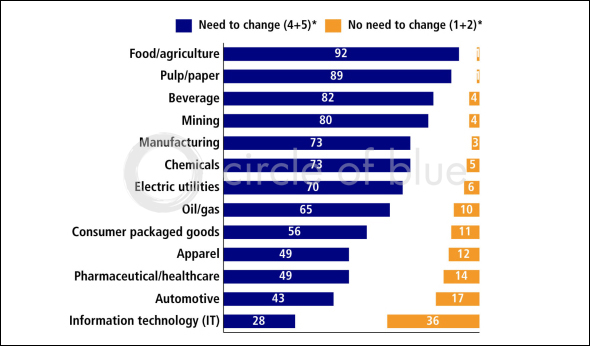
Experts have a strong preference for policy measures that reduce water demand over those that increase water supply.
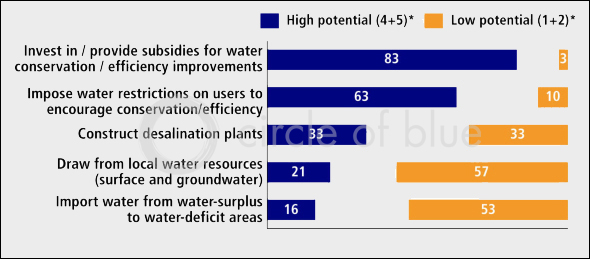
The greatest perceived barriers to sustainable water management are government policy and public understanding.
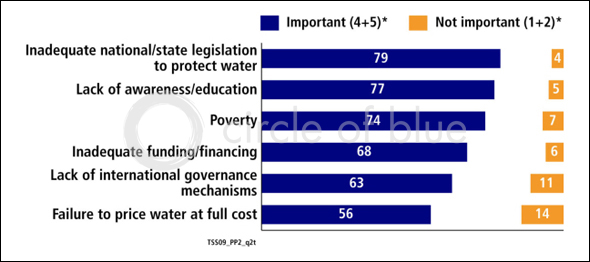
Managing fresh water sustainably and equitably requires ?a multi-faceted approach.
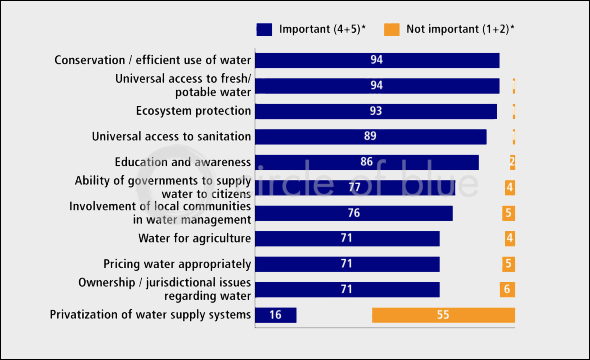
*On a scale of 1 to 5, where 1 represents “Not need to change at all” and 5 represents “Significant need to change.” The white space in this chart represents neutral ratings (3) and “DK/NA.”
Circle of Blue’s senior editor and chief correspondent based in Traverse City, Michigan. He has reported on the contest for energy, food, and water in the era of climate change from six continents. Contact
Keith Schneider




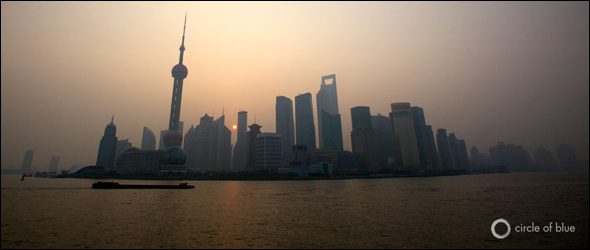
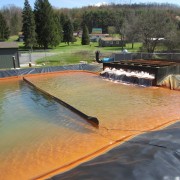
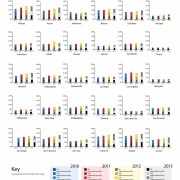
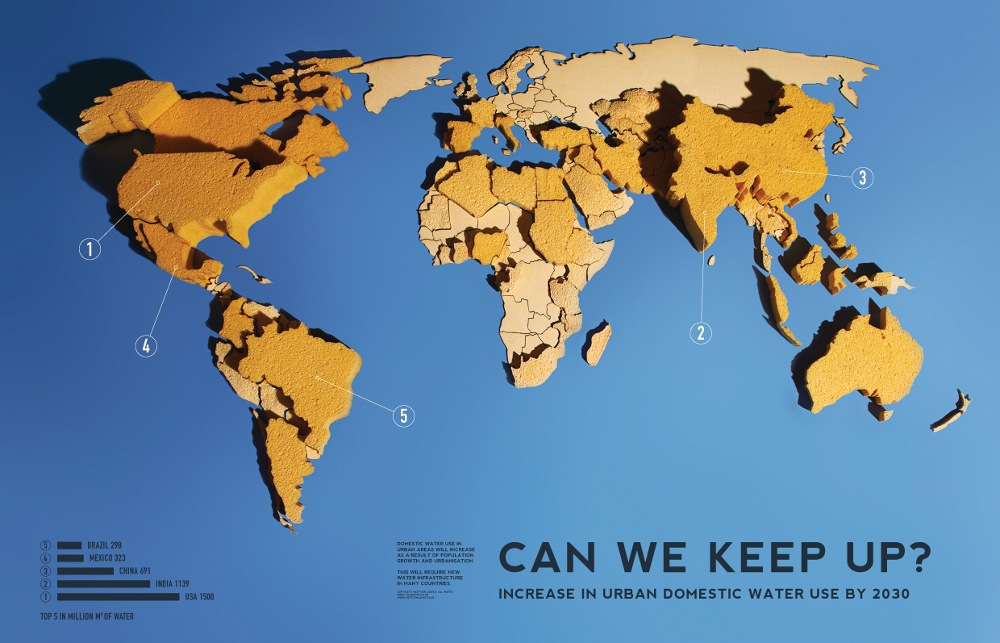


“Experts have a strong preference for policy measures that reduce water demand over those that increase water supply.”
That question is flawed: You failed to include prices signals.
Maggie Catley-Carlson is a Patron of the Global Water Partnership (as of January 2008), no longer its chair.
Sustainability needs to be translated to the regional levels through long-term planning that is inclusive of urban users, specialists, managers, environmental advocates and agricultural users. Planning incorporates Community-based governance / partnerships and Better government policies / regulations and Holistic management of ecosystems and Public common resources / equitable access. See http://www.waterassembly.org
I am looking for publications that not only address current water scarcity issues in various parts of the world, but also provide a scientifically based prognostication of what the world will look like if we do nothing to address the issue: in 5 yrs, 10 yrs, 20, etc. and addresses the health aspects, environmental aspects, industrialization, agriculture, global finances, human hostilities, etc. Can you recommend some good references or point me in the right direction? Thanks in advance for any assistance.
I am looking for publications that not only address current water scarcity issues in various parts of the world, but also provide a scientifically based prognostication of what the world will look like if we do nothing to address the issue: in 5 yrs, 10 yrs, 20, etc. and addresses the health aspects, environmental aspects, industrialization, agriculture, global finances, human hostilities, etc. Can you recommend some good references or point me in the right direction? Thanks in advance for
Thanks to the experts who makes peoples of the world to be aware on water scarcity .